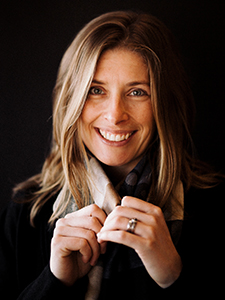Emily Fischer receives Macelwane Medal, one of AGU’s highest honors
In recognition of her significant contributions to the geophysical sciences as an outstanding early career scientist, the American Geophysical Union has chosen CSU Atmospheric Science Associate Professor Emily Fischer for the James B. Macelwane Medal. She will be honored at the AGU Fall Meeting in San Francisco in December for her breakthrough research on air pollution and her efforts to increase diversity in geosciences.
“The Global Burden of Disease ranks air pollution as the fourth largest health risk in the world. … Knowing how much pollution comes from what sources for a given location, what are the pollutant properties, and how these pollutants are formed and evolve during atmospheric transport are key pieces of information for reducing health risk. That is why atmospheric chemistry is such a cornerstone of science for improving human health – and this is where Dr. Fischer’s work is making a major contribution,” wrote UC Berkeley Professor Ronald Cohen in his nomination letter.
During the summer of 2018, Fischer led the largest, most comprehensive research campaign ever attempted to analyze wildfire smoke. The National Science Foundation-funded WE-CAN, or Western Wildfire Experiment for Cloud Chemistry, Aerosol Absorption and Nitrogen, was a collaboration among five universities and the National Center for Atmospheric Research (NCAR) that involved a C-130 research plane loaded with scientific instruments. Analysis of the data collected during the campaign is ongoing and will shed light on the composition of wildfire smoke, how it changes over time and as it travels, and how it affects clouds. The results will bring insights on air quality, health impacts, weather and climate.
Read the full Source article, “Emily Fischer receives Macelwane Medal, one of AGU’s highest honors.”



